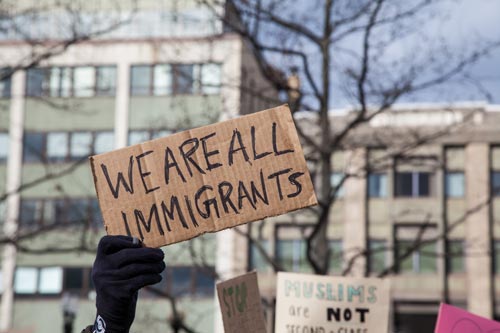Post-Conviction Relief
for Non-Citizens
If you are facing deportation or other immigration consequences as a result of a criminal conviction, it might be possible to vacate (“un-do”) that conviction.
When non-citizen clients meet with me for the first time, one thing is usually clear: the “good deal” that resolved their criminal case actually set off a chain of events that could lead to their deportation.
With each new family I meet, I have to explain the fundamental flaw in our system: that a non-citizen with a green card who has lived here their entire life can be deported for accepting the exact same plea – with the same sentence, for the same crime – that sometimes wouldn’t even give a U.S. citizen a criminal record.
And that’s not fair.
That is why for nearly a decade I have chosen to specialize in helping non-citizen clients vacate these convictions to avoid deportation, ineligibility for relief in immigration court, inability to travel internationally, and ineligibility for citizenship.

The keys to success for post-conviction relief for non-citizens:
Experience, Expertise, Creativity
Experience
My interest in these cases began in 2013 when I was co-counsel for the defendant in the landmark Supreme Judicial Court case Commonwealth v. Sylvain. This case substantially expanded the availability post-conviction relief for non-citizen defendants who were not aware that they were pleading guilty to a case that would get them deported.
Since then, I’ve successfully litigated dozens of these motions in district and superior trial courts all across the state and in the Appeals Court. I have helped my clients remain here at home with their families in the United States and avoid deportation to countries including Cape Verde, Jamaica, Haiti, Brazil, Cambodia, India, South Korea, the Dominican Republic, and Vietnam.
Conviction vacated, deportation avoided. Our client was facing deportation based on a case where he received a continuance without a finding (“CWOF”), which meant that his case would be dismissed after a period of probation. He completed probation and thought he was all set. Nearly 15 years later he found out that for non-citizens a CWOF is still considered a conviction, and was placed in deportation proceedings. We vacated his CWOF and he is no longer deportable.
Conviction vacated, client granted citizenship. Our client was unable to travel outside the country or become a citizen and risked deportation due to a 30-year-old case that wasn’t even considered a conviction under Massachusetts law. We filed a motion and our client was allowed to withdraw his plea. The case was dismissed by agreement, and about a year later we got an email from this client giving us the good news that he had become a U.S. citizen.
Conviction vacated, imminent deportation avoided. More than 25 years ago our client was convicted of several offenses that caused him to be ordered deported back to a country where he and his family had suffered unimaginable horrors. For many years deportation orders to this country were not being carried out and he went on to have a family and career, and hoped this was all behind him. When his country started accepting deportees again he was taken from his family one day without warning and put in immigration detention, where he faced imminent deportation with no opportunity to go back to immigration court. We filed a lengthy motion supported by hundreds of pages of exhibits explaining why the conviction should be vacated. The judge agreed, and our client is back home with his family.
Conviction vacated, deportation avoided, client granted citizenship A superior court judge allowed our client to vacate his plea because he did not understand at the time that the “good deal” he was getting wasn’t so good after all since it would result in his deportation from the place he has lived since he was a child. Our client got ordered deported on the basis of this conviction many years ago, but until recently his country was not issuing travel documents for its citizens so he had been able to remain here. This recently changed and he was at risk of being deported within the next year. By winning his case he was able to get his case thrown out of immigration court and he was able to apply for citizenship.
Conviction vacated After an evidentiary hearing where we called two witnesses to testify, a judge vacated our client’s conviction for a drug offense and he is now eligible for discretionary relief in immigration court.
Expertise
This is a highly specialized practice area. It’s not exactly immigration law, but it’s not exactly criminal law either. It’s sometimes referred to as “crimmigration” and it is a complicated and nuanced area of law that I have spent nearly a decade learning inside and out.
I am frequently asked to present to and train other attorneys on this topic, and I also provide one-on-one mentorship to attorneys who are new to this area of law.

Creativity

Most of my clients came to the U.S. as children and have no ties to the country they were born in. My job is often to help judges understand that deportation is worse than any jail sentence they might have gotten if they rejected the plea offer that seemed like a “good deal” at the time and went to trial.
Over the years I have spent hundreds of hours interviewing my clients and their family members so I can learn to walk in their shoes, because that’s exactly what I’ll be asking the judge to do. I am always thinking outside the box for new and compelling ways to convey this information to the court.
If you or a family member are facing immigration consequences from a criminal conviction, please review the Consultation and Case Screening Process for more information.
